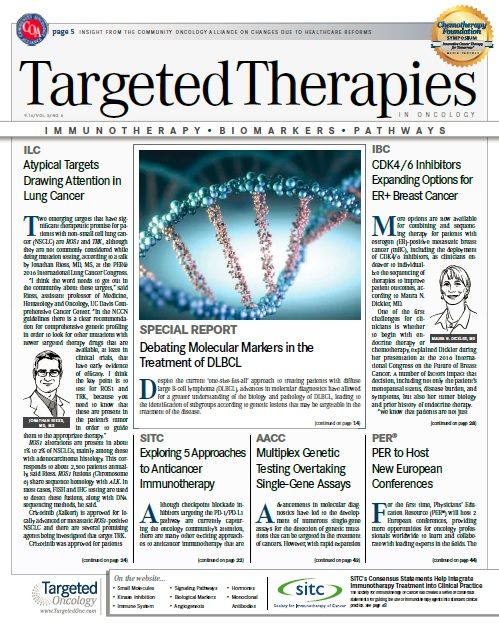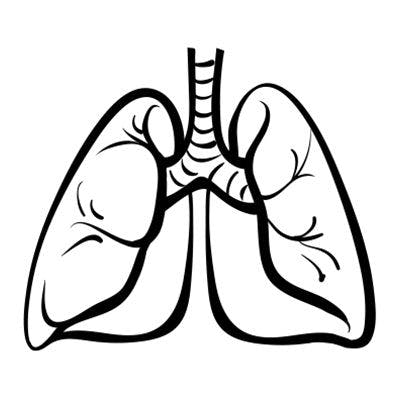Multiplex Genetic Testing Overtaking Single-Gene Assays
Lynette M. Sholl, MD, discusses advancements in molecular diagnostics that have led to the development of numerous single-gene assays for the detection of genetic mutations that can be targeted in the treatment of cancers.
Advancements in molecular diagnostics have led to the development of numerous single-gene assays for the detection of genetic mutations that can be targeted in the treatment of cancers. However, with rapid expansion of the number of potential targets that can be treated in various cancer types, comprehensive tumor profiling is becoming more efficient and more in demand than single-gene assays, according to a presentation on approaches to genetic testing at the 2016 American Association for Clinical Chemistry (AACC) Annual Scientific Meeting & Clinical Lab Expo.
While single-gene assays, such as reverse transcription polymerase chain reaction (RT-PCR) testing for fusion transcripts and fluorescence in situ hybridization (FISH) for detection of rearrangements and copy number gains, are beneficial because they are fast and inexpensive to perform, it is difficult to maintain each of these tests when they begin to add up, presenter Lynette M. Sholl, MD, said.
“Once you start to combine these assays, as we do more often because more and more targets are of interest in the clinical space, it can start to take a while to do all these assays, the costs begin to add up, the reporting becomes much more complicated, and ultimately, would you even have enough tissue to actually do all of the testing that you want to do approaching them in this manner,” said Sholl, an assistant professor of pathology at Harvard Medical School and associate pathologist at Brigham and Women’s Hospital.
Instead, multiplex gene panel testing has evolved with a number of different approaches to simplify this dilemma. Multiplex gene panels require smaller amounts of DNA to look at larger amounts of genetic variants at the same time.
Mass spectrometry-based genotyping, which the Brigham and Women’s Hospital and Dana-Farber Cancer Institute used between 2011 and 2013, was able to evaluate up to 470 mutations in 41 genes. The method was beneficial for the detection of hot spot mutations in oncogenes, for example, yet it very significantly underestimated the mutations in tumor suppressor genes and it was unable to detect translocations or copy number alterations in the genes, Sholl noted.
With next-generation sequencing (NGS)based testing methods, smaller amounts of DNA are required and the sensitivity can be calibrated to the amount of tissue available. This is important because it is difficult to attain sufficient amounts of tumor tissue for pathologic testing and because multiple single-gene assays require larger amounts of tissue for testing, often more than a biopsy is able to get.
“The reality is that many patients simply do not have a specimen that has 3 linear mm of tumor in them,” Sholl said. Yet, with less than 3 mm of tumor tissue, the fail rate of the tissue for standard sequencing increases from 20% to 80%.
With a hybrid capture system, at least 50 ng of DNA is necessary for genomic testing, and even less is required for an amplicon-based system. Amplicon sequencing may be faster and cheaper than hybrid capture technology, but it does not include as many targets as the hybrid capture method.
The technology used for NGS ultimately depends on the amount of testing performed at the center, which is why Sholl said that Brigham and Women’s Hospital and Dana-Farber Cancer Institute chose a system that could handle a higher volume, one in a number of decisions to determine the correct method for the institute’s genetic testing.
At the hospital, Sholl and colleagues use a custom hybrid capture system with a tailored list of 309 genes that are tested for mutations and DNA alterations with the high throughput Illumina HiSeq 2500 system. Results, however, can take weeks to return to the physician.
One popular method used by several clinics across the country is the Ion Torrent for NGS using Ion AmpliSeq panels, which requires even less DNA input and allows for a faster turnaround time for a smaller volume.
With the right technology for tumor profiling, according to the clinic’s needs, oncologists can identify patients with biomarkers who can participate in ongoing clinical trials and who may benefit from the experimental drugs.
“When you identify the right kind of target and give them the right kind of therapy, you can see some really spectacular results,” Sholl said.
Identifying these actionable variants for cancer diagnosis and treatment, however, depends on being able to identify whether a variant is a germline or somatic mutation. Germline mutations need to be considered in tumor testing, otherwise results are complicated by too many identified variants.
“We’re really doing a somatic-tumor-testing only type of approach, but we always have germline variants contaminating our results, and we haven’t gured out a way to deal with that,” Sholl said.
One option is to test both a tumor sample and a normal sample from the patient to identify and eliminate germline variants; however, the additional testing increases costs and efforts. Or, known germline polymorphisms documented in publicly available databases can be filtered out from tumor-only sequencing, although no database yet encompasses all variants, especially for minority populations.
Brigham and Women’s Hospital and Dana-Farber Cancer Institute are developing a germline testing infrastructure to ease the complications of germline and somatic variant testing at the hospital. The next step in molecular diagnostics may be the integration of these two types of testing for a larger picture of cancer genetics.



















